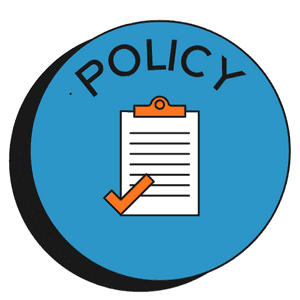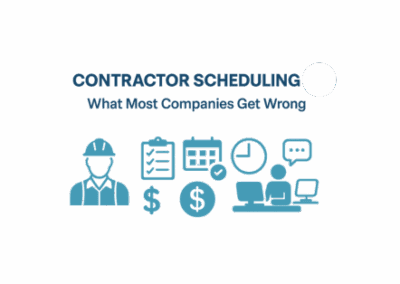Maintaining a productive and professional work environment is crucial for the success of any organization. A critical aspect of achieving this goal is effective employee discipline. Employee discipline ensures that workers know company rules, follow them, and contribute to the overall success of the business. Let’s take a look at the importance of employee discipline in the workplace and the key strategies for implementing it effectively.
What is Employee Discipline?

Employee discipline refers to the process by which an organization enforces its rules and standards of behavior among its employees. It involves taking actions to fix policy violations, ensure compliance with rules, and maintain a respectful and productive workplace. Consequences for misconduct can vary from warnings to suspension or termination, based on the seriousness of the behavior. The goal of employee discipline is to correct behavior, deter future violations, and uphold organizational standards.
Why is Employee Discipline Important in the Workplace?
Employee discipline is important in the workplace as it helps to ensure that your team understand and adhere to company policies and standards. Creating a consistent and professional work environment is important for business success. Employee discipline is also important for identifying and correcting behaviours or actions that are detrimental to the organization.
By addressing these issues, employers can improve productivity, reduce conflicts, and maintain a positive workplace culture. It also helps to protect the interests of the business and its stakeholders, such as protecting the company’s reputation, assets, and legal obligations.
Overall, effective discipline is crucial for maintaining a productive and professional workplace environment. It helps to create a fair and just workplace environment that fosters productivity, engagement, and success.
Key Strategies for Implementing Effective Employee Discipline
Effective employee discipline is crucial for maintaining a productive and professional workplace environment. Employers need to have a clear and consistent approach to discipline to ensure that workers understand company policies and adhere to performance expectations. Additionally, employee discipline helps to identify and correct behaviors or actions that are detrimental to the organization. This article will discuss key strategies for implementing effective discipline.
Create Clear Policies

The first step in effective employee discipline is to establish clear policies and expectations. Employers must make sure their team knows company rules, performance goals, behavior expectations, and the penalties for breaking them. Communicate policies regularly through training, employee handbooks, and other forms of communication. Clear rules and guidelines help employees know how to behave at work, and clear expectations make it easier for them to follow.
Application of Policies
Discipline must be applied consistently across all employees. Employers should avoid any appearance of favouritism or discrimination when administering discipline. Consistent application of policies and procedures helps to create a fair and just workplace environment. Inconsistent administration of discipline creates resentment and mistrust among employees, leading to a toxic workplace environment.
Document Everything
Employers should keep detailed records of all disciplinary actions taken, including the incident or behaviour that led to the discipline, the consequences imposed, and any subsequent follow-up. Keep these records secure, and store them correctly.
Keeping detailed records can help employers avoid legal claims. It can also demonstrate that they have addressed employee misconduct. Additionally, these records can serve as evidence for future use.

Use Progressive Discipline
Progressive discipline is an approach that involves a series of increasingly severe consequences for repeated violations of company policies. For example, a first offence may result in a verbal warning, while a second offence may result in a written warning, and a third offence may result in termination.
Progressive employee discipline helps your team to understand the consequences of their actions. It also gives them a chance to improve their behavior. This happens before they face more serious penalties.
Progressive discipline helps employees improve behavior and performance before facing more serious consequences. It also ensures that the consequences imposed are proportional to the severity of the offence. Additionally, progressive discipline can help to protect employers from legal liabilities, as it demonstrates that they have taken reasonable steps to address misconduct.
Investigations
Before administering employee discipline, employers should conduct a thorough investigation of the incident or behavior in question. This may include gathering evidence, interviewing witnesses, and reviewing relevant documentation. Employers should document their investigation and keep records of all actions taken. A well-conducted investigation can help employers determine the appropriate level of discipline to administer, as well as protect the business from legal liabilities.
If you decide it’s time to write up an employee, be sure to check out our downloadable template here!
Be Professional

Discipline should always be administered in a professional and respectful manner. Employers should avoid yelling, insulting, or belittling employees. Instead, communicate discipline calmly and clearly. Focus on the behaviour in question rather than the individual.
Employers should also avoid discussing disciplinary actions with other team members or outside of the disciplinary process. This helps to protect the privacy and confidentiality of the employee in question.
Being professional and respectful during the disciplinary process can help to maintain a positive workplace environment. Employees are more likely to respect their employers when treated with respect and professionalism. Additionally, a respectful approach to discipline can help to reduce conflicts and maintain positive working relationships.
Provide Opportunities for Improvement
Effective employee discipline should not be solely punitive. Employers should also provide opportunities for employees to improve their performance or behaviour. This may include additional training or coaching, counselling, or other forms of support. Providing opportunities for improvement can help to prevent future disciplinary actions and improve employee performance and productivity.
To Finish..
Employee discipline is a critical aspect of maintaining a productive and professional workplace environment. By establishing clear policies and expectations, conducting thorough investigations, using progressive discipline, being professional and respectful, documenting everything, and providing opportunities for improvement, employers can effectively administer discipline and support the success of their business.




